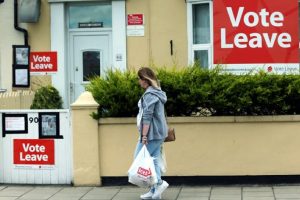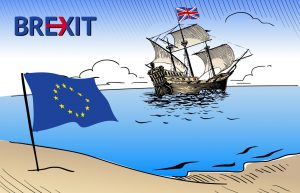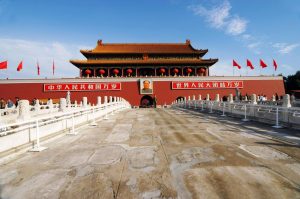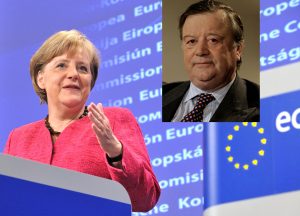The increasing tensions in Spain, leading up to the Catalan parliament’s unilateral declaration of independence on 27 October, offer a strong case for a more federal Europe, made stronger by the lack of other viable options.
 In the distant past, this is something that would have been settled on the field of battle. Spain would seek to put down the province declaring independence, and Catalonia would have resisted.
In the distant past, this is something that would have been settled on the field of battle. Spain would seek to put down the province declaring independence, and Catalonia would have resisted.
In the twenty-first century, there’s reasonable hope that this won’t end in bloodshed. There’s a vestige in that older way of thinking in the speed with which Spain suspended Catalan autonomy, calling fresh elections, and the threats to arrest the (now ousted) Catalan leader Carles Puigdemont. From the outside, it feels like a game of double bluff, but one in which every twist tears at the self-understanding of the many who see themselves as both Catalan and Spanish, making it harder to find a negotiated solution.
In a dis-spiriting parallel with Brexit, the near-impossibility of establishing an independent state seem not to impinge on the desire for it (countries can only join the EU with the agreement of all existing members, and Spain would be likely to veto membership). The sense is of poorly and partially articulated grievances leading to actions that make things much worse.
For the EU this presents a dilemma. Donald Tusk quickly came out with a statement saying that, the declaration changes nothing, and the EU will deal only with Madrid. In one sense he has no choice: for the time being this is an internal matter for a member state. In the short term, that would come under pressure only if Spain cracks down on Catalonia in a way that calls into question its commitment to the basic ideals of the Union. That’s possible, and there was pressure for action on that basis against Hungary in May 2017, but the hope is that things won’t get that bad.
But the other side of the EU’s dilemma is that this does change everything.
Continue reading “Catalonia: the case for a federal Europe”
 Early last autumn I blogged about Brexit as a new class war — already by then it was seeming like a cynical attempt of a wealthy minority to mobilise the frustrations of the most disadvantaged to vote in a way that helped the wealthy minority. I hesitate to lay that at the door of the Conservatives because that is a deep betrayal of the “one nation conservatism”, which deserves respect, and took us into the EU, displaced by something far nastier.
Early last autumn I blogged about Brexit as a new class war — already by then it was seeming like a cynical attempt of a wealthy minority to mobilise the frustrations of the most disadvantaged to vote in a way that helped the wealthy minority. I hesitate to lay that at the door of the Conservatives because that is a deep betrayal of the “one nation conservatism”, which deserves respect, and took us into the EU, displaced by something far nastier.
 In the distant past, this is something that would have been settled on the field of battle. Spain would seek to put down the province declaring independence, and Catalonia would have resisted.
In the distant past, this is something that would have been settled on the field of battle. Spain would seek to put down the province declaring independence, and Catalonia would have resisted.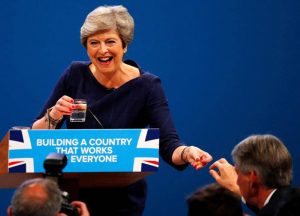 Almost since the moment when she became Prime Minister it has been tempting to mock Theresa May. From her 2016 conference speech, when she seemed to have abandoned her previous support for EU membership and managed the meaningless “Brexit means Brexit”, through vacuous comments on the “will of the people”, to her performances as the “Strong and stable” “Maybot” in the 2017 General Election.
Almost since the moment when she became Prime Minister it has been tempting to mock Theresa May. From her 2016 conference speech, when she seemed to have abandoned her previous support for EU membership and managed the meaningless “Brexit means Brexit”, through vacuous comments on the “will of the people”, to her performances as the “Strong and stable” “Maybot” in the 2017 General Election. 
 On the face of it the idea is simple: repeal the 1972 European Communities Act, which provided a mechanism to bring into UK law things emerging from the EU, and shift all EU-derived law into British law. British and EU law have been so intertwined for so long that simply repealing everything would create some big holes, so this could be seen as a pragmatic solution. It means that on the day after leaving the EU, UK law would be in the same place that it was the day before.
On the face of it the idea is simple: repeal the 1972 European Communities Act, which provided a mechanism to bring into UK law things emerging from the EU, and shift all EU-derived law into British law. British and EU law have been so intertwined for so long that simply repealing everything would create some big holes, so this could be seen as a pragmatic solution. It means that on the day after leaving the EU, UK law would be in the same place that it was the day before. So far, so bad. There is grief and there is anger. At the time of writing this, it’s not clear whether the fire was a result of building regulations not being followed, or not being sufficient to ensure fire safety. Whatever the actual cause, many people have died nasty deaths.
So far, so bad. There is grief and there is anger. At the time of writing this, it’s not clear whether the fire was a result of building regulations not being followed, or not being sufficient to ensure fire safety. Whatever the actual cause, many people have died nasty deaths.